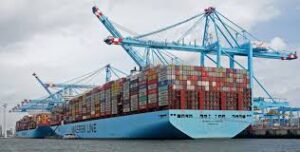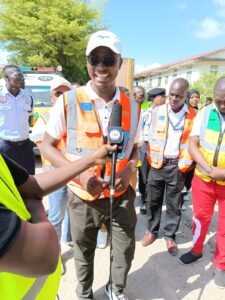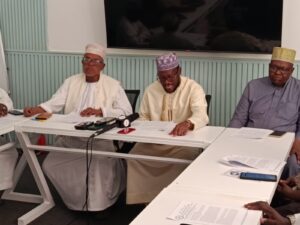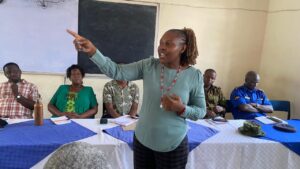Akkon Lines’ Visit Signals Rising Confidence in Mombasa’s Maritime Power

Akkon lines Chartert. (Photo/ Courtesy)
By Andrew Mwangura
Email, thecoastnewspaper@gmail.com
Kenya’s maritime sector continues to draw strong international attention, and the recent engagement between Kenya Ports Authority managing director Captain William Ruto and senior representatives of Turkey’s fast-growing Akkon Lines is yet another signal that Mombasa’s position as a regional gateway is steadily strengthening.
The visit by managing partner Hakan Cevik and his delegation forms part of a broader regional reconnaissance, but its significance lies in the clear interest of a rising Mediterranean carrier seeking to anchor itself more firmly in East Africa’s dynamic trade environment.
In many ways, this meeting reflects the shifting currents of global shipping, where emerging players are increasingly looking to diversify routes, tap into rapidly developing markets and form strategic alliances that will define new supply chains.
For Kenya, it underscores the value of sustained investment in port modernization, reliability and competitive service delivery—elements that have transformed Mombasa into a magnet for carriers searching for efficient access to inland and regional markets.
Akkon Lines’ footprint—stretching from Turkey across the Mediterranean to North Africa and the Middle East—places it among the agile, fast-expanding shipping lines responding to the fluid demands of globalized commerce.
The company offers regular container services, land transportation, warehousing and an increasingly integrated logistics model. Its interest in the Indian Ocean region is not incidental; it is driven by trade realities that have seen East Africa evolve from a peripheral market to a strategic corridor linking Africa, Asia and Europe.
Turkey itself plays a vital role in Kenya’s export matrix, with consistent demand for tea, tropical fruits, cut flowers and other horticultural goods.
Enhancing logistics connectivity between the two countries therefore serves direct commercial interests, promising shorter transit times, more predictable schedules and potentially competitive freight rates for exporters and importers across the region.
Capt. Ruto’s assurance that the Port of Mombasa has made deliberate and significant infrastructural advancements is not merely institutional rhetoric. The expanded container terminals, enhanced yard capacity, improved navigation systems and continuous operational reforms are tangible signals of readiness.
These investments form the bedrock upon which new partnerships can thrive, particularly with carriers seeking reliability and operational efficiency.
The port’s ability to attract new entrants such as Akkon Lines reflects a shift towards more diversified shipping options, reducing dependency on long-established lines and injecting healthy competition into the maritime ecosystem.

The discussions between KPA and Akkon Lines—centered on cargo handling cooperation, schedule alignment and market development—speak to a deeper strategic alignment.
In a region where demand for shipping services continues to grow, harmonizing schedules and capacities can help streamline supply chains, reduce dwell times and open new commercial corridors.
Beyond logistics, this engagement opens doors to broader economic activity: increased vessel calls stimulate ancillary services such as ship repair, maritime training, bunkering, warehousing and value-added logistics operations.
These ripple effects reinforce the port’s role as a central pillar of Kenya’s Blue Economy agenda and a key driver of regional integration.
Moreover, the entry or expansion of new carriers has implications for competition—an important catalyst for better pricing, improved customer service and innovation in cargo solutions.
Shippers across East Africa have long expressed the need for more varied choices in operators serving Mediterranean and European markets.
Akkon Lines’ interest in this corridor could help fill that gap, while creating new commercial pathways for Kenyan exports seeking more direct or efficient routes to Turkey and surrounding regions.
As global supply chains continue to evolve in response to geopolitical shifts and economic realignments, establishing such linkages becomes essential for a resilient national trade framework.
This engagement also reflects Kenya’s broader diplomatic and economic ties with Turkey, which over the years have deepened across trade, investment, security cooperation and technological exchange. Maritime connectivity is a natural extension of this relationship.
As Turkish manufacturers continue expanding their footprint in African markets and Kenyan agricultural products maintain strong demand in Turkey, a strengthened logistics bridge between the two countries promises mutual economic benefit.
Shipping lines often serve as catalysts for wider bilateral commercial expansion, and Akkon Lines’ interest could very well spur further Turkish investments in Kenya’s wider logistics and industrial ecosystem.
Ultimately, the meeting in Mombasa is more than a routine courtesy call; it is a signal of confidence in Kenya’s maritime capacity and regional relevance. It highlights the need for sustained efficiency at the Port of Mombasa, continued modernization and an open posture towards new entrants in the maritime space.
For Kenya Ports Authority, embracing such partnerships is not merely strategic—it is essential for maintaining competitiveness in an era where ports across the continent are rapidly upgrading and vying for transshipment and gateway status.
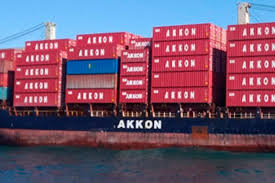
As global trade corridors realign and shipping lines recalibrate their networks, Kenya stands at a pivotal moment.
The conversation with Akkon Lines offers a glimpse of the opportunities ahead—a more interconnected maritime landscape, a diversified pool of shipping partners and a strengthened position for Mombasa as the preferred gateway to East and Central Africa.
It is a moment that requires foresight, consistency and a bold commitment to building strategic global alliances.
The author is a policy analyst specializing in maritime governance and blue economy development.



